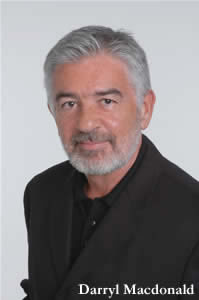 Darryl Macdonald is the Director of the Palm Springs International Film Festival and the Palm Springs International ShortFest and Short Film Market. He is the co-founder of The Seattle International Film Festival, and was its Executive and Artistic Director from 1975 – 2003. He served as the first Artistic Director of the Palm Springs Film Festival (1989 -1993) and the Hamptons Film Festival (1993 -1996) and was the Programming Director of the Vancouver International Film Festival (1988 -1992). He has also served as the Director of the Goodwill Games Film Festival, the Women in Cinema Festival and the Washington State Centennial Film Festival.
Darryl Macdonald is the Director of the Palm Springs International Film Festival and the Palm Springs International ShortFest and Short Film Market. He is the co-founder of The Seattle International Film Festival, and was its Executive and Artistic Director from 1975 – 2003. He served as the first Artistic Director of the Palm Springs Film Festival (1989 -1993) and the Hamptons Film Festival (1993 -1996) and was the Programming Director of the Vancouver International Film Festival (1988 -1992). He has also served as the Director of the Goodwill Games Film Festival, the Women in Cinema Festival and the Washington State Centennial Film Festival.
He has served on the Award Juries of several international film festivals and the Independent Spirit Awards. He has written articles on film and filmmaking for Variety Books, Reel News and the Hollywood Reporter, among other publications. He currently serves on the Advisory Council for the Documentary Channel, the International Film Festival Summit and is a Board member of the Seattle International Film Festival. Macdonald has been named a Chevalier of the Order of Arts and Letters by the Republic of France for his contributions to French Cinema, presented with a Distinguished Citizen Award by the Mayor of Seattle and Event Producer of the Year Award from the N.E.P.A.
Bijan Tehrani: What are some new things that we can expect to see at the 2011 Palm Spring International Film Festival?
Darryl Macdonald: Well, the festival in general is one of the largest film festivals in the US, and this year will be no exception. We have 193 films from 66 different countries in the 2011 PSIFF lineup. One of the new programming initiatives that I am particularly excited about this year is our African Cinema showcase, titled Cinema Safari, which will feature films from a wide range of countries including Botswana, Chad, Ethiopia, Kenya, Rwanda, Uganda and South Africa, among others. It’s just been a really striking couple of years for African Cinema, which is emerging almost out of no-where and on to the world stage in a major way. The people of Africa have a strong, time honored cultural tradition of storytelling, and film is, first and foremost, a means of storytelling. From screenwriters and technicians to directors and actors, there is really a new African Cinema emerging and we are seeing some really exciting cinema and talents emerge from that part of the world. What’s great about African Cinema is that Africa is a continent that is beset by issues and at a turning point in its history; it’s past has been one of colonial domination, at least up until the last half century. Virtually every country in Africa has broken with that colonial past and has established their own independent governments, but both those countries and their people are still dealing with the issues of their colonial past. Not to make it all sound like gloom and doom; that’s just one layer of issues that are dealt with in many of the African films in this year’s line-up. Apart from that, there are many, many other issues that emerging countries from a continent like Africa would deal with through their books and their films as a way of exploring both their history and the way forward. One of the striking things about new African cinema how many of the films are hopeful, upbeat stories of triumph rather than tragedy, and it makes for truly inspiring and provocative cinema. It is such a rich and vibrant cinema, and I think that I can honestly say that there is currently no other part of the world where we are seeing such exciting and interesting filmmaking emerge.
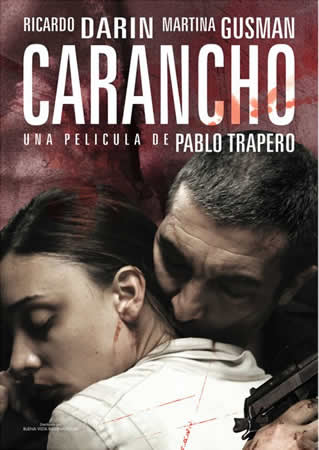 We are also, for the first time, launching a filmmakers’ retreat, which will begin two days before the festival. We will be bringing filmmakers from all over the world to participate in the retreat at the Annenberg Retreat Center in Rancho Mirage. The Retreat will have a two day agenda focusing on issues of importance to filmmakers around the world and launch a new initiative of the festival that will be ongoing through the years. Our aim is to play an active role in helping indigenous film production to thrive around the world and hopefully help spur independent film, in general, to carve a stronger foothold with audiences and distributors in North America. So I am very excited about our retreat, as well as the opportunity to bring all of our filmmakers together to participate in creating its initiatives and its concrete agenda.
We are also, for the first time, launching a filmmakers’ retreat, which will begin two days before the festival. We will be bringing filmmakers from all over the world to participate in the retreat at the Annenberg Retreat Center in Rancho Mirage. The Retreat will have a two day agenda focusing on issues of importance to filmmakers around the world and launch a new initiative of the festival that will be ongoing through the years. Our aim is to play an active role in helping indigenous film production to thrive around the world and hopefully help spur independent film, in general, to carve a stronger foothold with audiences and distributors in North America. So I am very excited about our retreat, as well as the opportunity to bring all of our filmmakers together to participate in creating its initiatives and its concrete agenda.
BT: Can you touch on the many nations that will be represented at the festival this year?
DM: As I said, there will be 66 different countries represented in this year’s festival line up. As always, we have films from many areas of world which have a tradition of strong national cinemas such as France, Germany, Australia, Italy, Canada and so on—they are well represented at this year’s festival. Another area of the world that I would point to that is yielding some particularly striking films this year would be Eastern Europe. Eastern Europe has a proud history of films and filmmakers and this year, there is a plethora of terrific films playing out of Eastern Europe. We have excellent representation from Bosnia-Herzogovina, Croatia, Czechoslovakia, Poland, Romania, Serbia, Slovenia and Slovakia, and these are really, really strong films. So I am particularly delighted about our Eastern European Cinema this year. Of course, one of the highlights of our festival is our annual showcase of South American and Latino films, with especially strong entries from Spain (which will have 8 films in this year’s lineup) this year. The Middle East will be represented as well, including Israel, Iraq and Iran (with 4 entries in the Festival this year). World Cinema, in general, appears to be going through sort of a rebirth, and whether it’s due to the access of cheaper, high-end technology or whether it is simply a manifestation of the political zeitgeist or otherwise, this year’s film lineup is very diverse in every way and it is going to make for a very exciting festival.
BT: One of the great aspects of the Palm Spring International Film Festival is the interaction of the audience with the filmmakers, can you expand on this?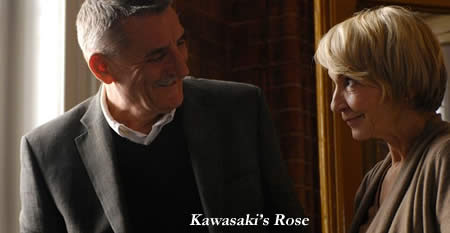
DM: One of the reasons, of course, is that we have fifteen theaters within walking distance of one another and all of them are showing films through the entire 11 days of the festival. Because of that proximity, filmmakers and filmgoers alike have the opportunity to interact not just at the Q&A’s after screenings, but in lines, on the streets and in the gathering places where people tend to congregate at the Festival. Interestingly, it seems that the filmmakers are just as avid to see as many films as possible as the other festival attendees – so there’s always lots to talk about. Also, Palm Springs is a unique place in many ways, one of which is that the sun is out almost 365 days a year and this always seems to put people in a more relaxed mood and makes it very conducive to Palm Springs being an ideal host city for this kind of festival. Another element of what makes it a special is that there is a large population of former filmmakers who have made Palm Springs their home, and we see evidence of this in the post-screening Q&A’s – the quality of the dialogue between filmmakers and their audience is generally more urbane. All of this makes for a very heady mix in which filmmakers from all over the world embrace this small town where people are 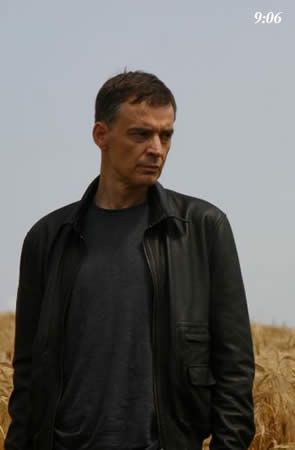 laid-back, film-savvy and very friendly.
laid-back, film-savvy and very friendly.
BT: It seems that Palm Springs is turning into the home of international filmmakers, would you agree with this?
DM: Well certainly international filmmakers have flocked to this city over the years to participate in the Festival and launch their American premieres here. This festival has also grown in leaps and bounds in terms of attendance and it now has the second largest attendance of any film festival in the U.S. Filmgoers are flying into Palm Springs from all over the country for the event; these are people that build a cultural vacation around coming to Palm Springs for a winter getaway at the Film Festival. Quite apart from the people who travel here for the event, when I worked here for the first Palm Springs International Film Festival there was not one screen in this city devoted to presenting foreign films, and now we have more per capita than any city I’m aware of in the United States. We have a large number of screens devoted to international and independent cinema – not a common occurrence in most cities of this size. We have had many films that have premiered here and have gone on to enjoy successful theatrical runs in the U.S. and have garnered Oscars in the foreign language film category, along with filmmakers who have attended the Festival as relative unknowns and gone on to enjoy illustrious careers as celebrated directors after their first exposure to American audiences here.
BT: Will the filmmakers attending the retreat stay for the entire festival?
DM: Well, certainly the first week’s filmmakers will be there. We have invited all of the filmmakers who have films showing in the first five days to attend both the retreat and the Festival. So audiences will have an opportunity to engage in Q&A sessions with the filmmakers attending the Retreat at their screenings. Unfortunately, most filmmakers cannot take two weeks out of their schedules to attend a film festival, so most of the filmmakers participating in the Retreat will not be present during the later days of the festival.
BT: How can audiences obtain tickets for the screenings?
DM: They can purchase tickets through our website, www.psfilmfest.org, and view the full festival line-up along with film descriptions on our site. If you are a member of our Film Society, you can get early access to 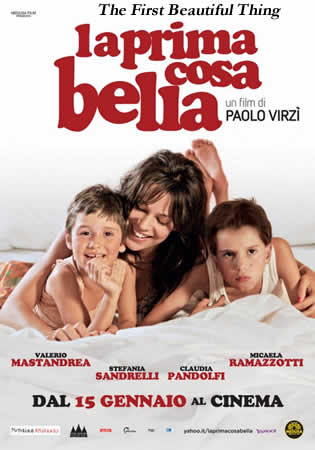 tickets starting on December 24th. Tickets will also be available for individual Festival shows in advance at our ticket outlets (at the Camelot Theatres or Courtyard Ticket and Info Center in Palm Springs, as well as Rush Tickets on the day of the screening. We try to make it as user friendly as possible and we also have an 800 number that people can call for tickets or information – 1 800 898 7256.
tickets starting on December 24th. Tickets will also be available for individual Festival shows in advance at our ticket outlets (at the Camelot Theatres or Courtyard Ticket and Info Center in Palm Springs, as well as Rush Tickets on the day of the screening. We try to make it as user friendly as possible and we also have an 800 number that people can call for tickets or information – 1 800 898 7256.
BT: Can you tell us about other interesting events at the Festival?
DM: Our Talking Pictures programs this year will feature a number of well-known current Oscar contenders, including Javier Bardem, Colin Firth and Michael Douglas. Those programs feature a screening of their 2010 Oscar-contending film, followed by an on-stage interview moderated by well known film media journalists.
We’ll also be presenting the Festival’s Icon Award to Michael Douglas at his tribute program, and hosting Monte Hellman for a Talking Pictures program featuring his new film, which premiered at Venice, and presenting a retrospective of his work at the Ace Hotel in Palm Springs. As always, we will have a large number of parties and receptions connected with individual films and special programs in the festival.
In addition to that, we will be reprising some of the biggest hits of the Festival at our annual Best of the Fest screenings, which will be presented at Festival venues on Monday, January 17, the Martin Luther King Day holiday.
BT: The Palm Springs Film Festival seems more enticing each and every year, and I am one of the many film fans looking forward to this event. Thank you very much for your time, and good luck!

